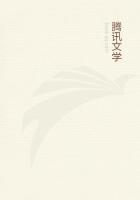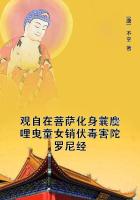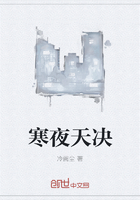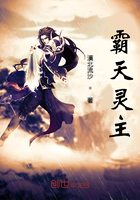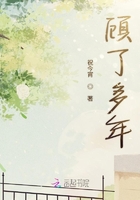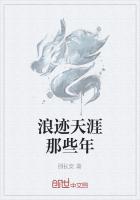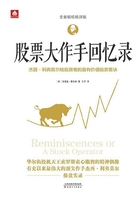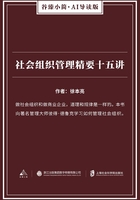It seems to me that Turgenieff, as an artist, saw nothing in my father beyond his great literary talent, and was unwilling to allow him the right to be anything besides an artist and a writer. Any other line of activity on my father's part offended Turgenieff, as it were, and he was angry with my father because he did not follow his advice. He was much older than my father, [18] he did not hesitate to rank his own talent lower than my father's, and demanded only one thing of him, that he should devote all the energies of his life to his literary work.
And, lo and behold! my father would have nothing to do with his magnanimity and humility, would not listen to his advice, but insisted on going the road which his own tastes and nature pointed out to him. Turgenieff's tastes and character were diametrically opposed to my father's. While opposition always inspired my father and lent him strength, it had just the opposite effect on Turgenieff.
[18] Turgenieff was ten years older than Tolstoy.
Being wholly in agreement with my sister's views, I will merely supplement them with the words uttered by his brother, Nikolai Nikolayevitch, who said that "Turgenieff cannot reconcile himself to the idea that Lyovotchka is growing up and freeing himself from his tutelage."
As a matter of fact, when Turgenieff was already a famous writer, no one had ever heard of Tolstoy, and, as Fet expressed it, there was only "something said about his stories from 'Childhood.'"
I can imagine with what secret veneration a young writer, just beginning, must have regarded Turgenieff at that time, and all the more because Ivan Sergeyevitch was a great friend of my father's elder and beloved brother Nikolai.
I do not like to assert it positively, but it seems to me that just as Turgenieff was unwilling to confine himself to "merely friendly relations," so my father also felt too warmly toward Ivan Sergeyevitch, and that was the very reason why they could never meet without disagreeing and quarreling. In confirmation of what I say here is a passage from a letter written by V. Botkin, a close friend of my father's and of Ivan Sergeyevitch's, to A. A. Fet, written immediately after their quarrel:
I think that Tolstoy really has a passionately affectionate nature and he would like to love Turgenieff in the warmest way possible; but unfortunately his impulsive feeling encounters nothing but a kindly, good-natured indifference, and he can by no means reconcile himself to that.
Turgenieff himself said that when they first came to know each other my father dogged his heels "like a woman in love," and at one time he used to avoid him, because he was afraid of his spirit of opposition.
My father was perhaps irritated by the slightly patronizing tone which Turgenieff adopted from the very outset of their acquaintance; and Turgenieff was irritated by my father's "crankiness," which distracted him from "his proper metier, literature."
In 1870, before the date of the quarrel, Turgenieff wrote to Fet:
"Lyoff Tolstoy continues to play the crank. It was evidently written in his stars. When will he turn his last somersault and stand on his feet at last?"
Turgenieff was just the same about my father's "Confession," which he read not long before his death. Having promised to read it, "to try to understand it," and "not to lose my temper," he "started to write a long letter in answer to the 'Confession,' but never finished it . . . for fear of becoming disputatious."
In a letter to D. V. Grigorevitch he called the book, which was based, in his opinion, on false premises, "a denial of all live human life" and "a new sort of Nihilism."
It is evident that even then Turgenieff did not understand what a mastery my father's new philosophy of life had obtained over him, and he was inclined to attribute his enthusiasm along with the rest to the same perpetual "crankinesses" and "somersaults" to which he had formerly attributed his interest in school-teaching, agriculture, the publication of a paper, and so forth.
IVaN SERGeYEVITCH three times visited Yasnaya Polyana within my memory, in: August and September, 1878, and the third and last time at the beginning of May, 1880. I can remember all these visits, although it is quite possible that some details have escaped me.
I remember that when we expected Turgenieff on his first visit, it was a great occasion, and the most anxious and excited of all the household about it was my mother. She told us that my father had quarreled with Turgenieff and had once challenged him to a duel, and that he was now coming at my father's invitation to effect a reconciliation.
Turgenieff spent all the time sitting with my father, who during his visit put aside even his work, and once in the middle of the day my mother collected us all at a quite unusual hour in the drawing-room, where Ivan Sergeyevitch read us his story of "The Dog."
I can remember his tall, stalwart figure, his gray, silky, yellowish hair, his soft tread, rather waddling walk, and his piping voice, quite out of keeping with his majestic exterior. He had a chuckling kind of laugh, like a child's, and when he laughed his voice was more piping than ever.
In the evening, after dinner, we all gathered in the zala. At that time Uncle Seryozha, Prince Leonid Dmitryevitch Urusof, Vice-Governor of the Province of Tula; Uncle Sasha Behrs and his young wife, the handsome Georgian Patty; and the whole family of the Kuzminskys, were staying at Yasnaya.


